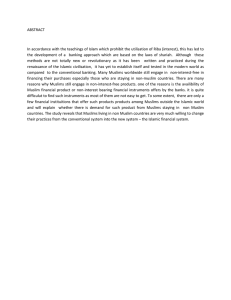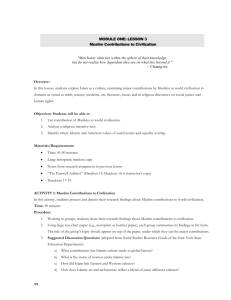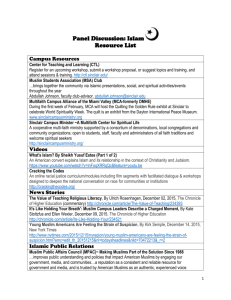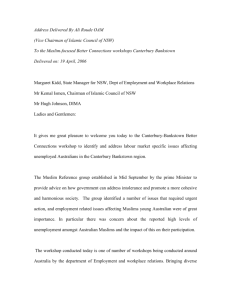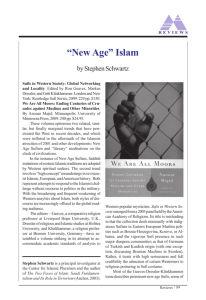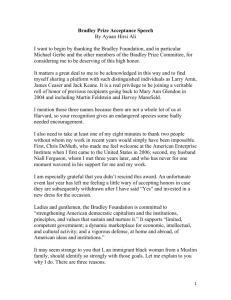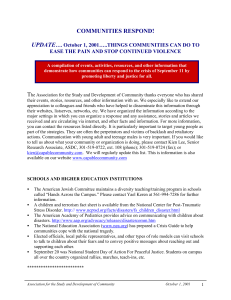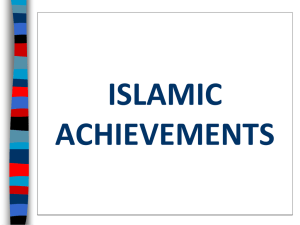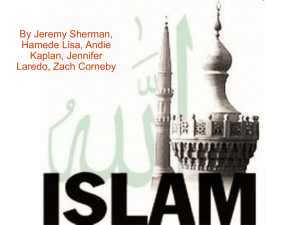Islamic Cultural Diffusion: Spread of Islam
advertisement
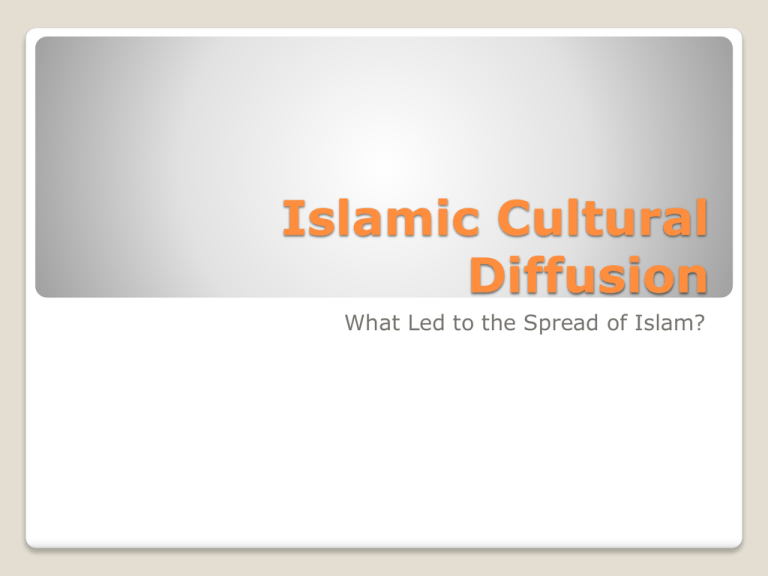
Islamic Cultural Diffusion What Led to the Spread of Islam? Military Success Muslims armies were very organized and had effective mobility. • After conquering cities, they would gain the support of military and naval forces of the conquered lands • Besides being well disciplined and expertly commanded, Muslims used tactical warfare that overwhelmed their enemy. • Because they believed that their victories were sign of Allah’s support of Islam, Muslims armies fought bravely. • The faith of the Muslims soldiers was crucial to their military success. • The weaknesses of the Byzantine and Persian empires led to military triumphs for Muslims. • During the famous battle of Tours in 732, Christian warriors halted the Muslim advance in Western Europe and confined them to Spain. • Muslim Trade Network Because of their geographic location, Muslims were linked to trade and ideas by both sea and land. • The Mediterranean Sea and the Indian Ocean connected the Muslim Empire with the rest of the world through sea-trading zones. • Arabia’s access to land and sea transportation routes allowed Muslims to trade freely through Asia, Africa and Europe. • A Muslim land network connected Asia, Africa and Europe through the Silk Road trade routes. • In cities like Mecca, Cairo and Baghdad, a blending of culture resulted in information and ideas being carried outside Arabia. • The spread of Islamic culture contributed to advance learning in medicine, mathematics and science. • Treatment of Conquered Peoples • • • • • After being conquered, many people were attracted by the appeal of Islamic culture and chose to convert to Islam. Muslims treated conquered people with toleration and allowed them to retain their own religions. Because of the similarities between their religions, Islamic culture and ideas appealed to many Christians and Jews. Muslims’ tolerance of non-Muslims wan non-Muslims support and led to widespread acceptance of Islamic ideas and beliefs. For some people who were already persecuted, Muslims invaders were welcomed as liberators. Regions of Africa Islamic Africa Today
